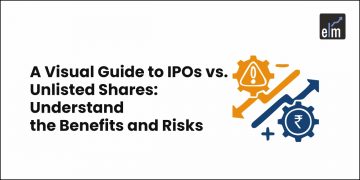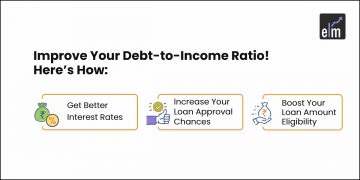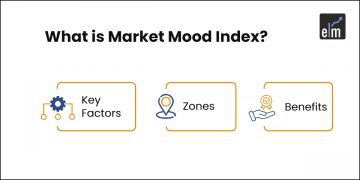With all the information you can find online, personal finance has never been more accessible. People from all walks of life can plan their futures by using tips that guarantee financial freedom. With that said, to become financially secure you need to take control of your finances.
But nothing says you can’t start today. Regardless of how your bank account looks, the time to start planning your future is now. For that, here are our expert personal finance tips for beginners.
Create A Budget
Without a doubt, the best place to start planning your finances is by creating a budget. The great thing about a budget is that it helps you measure your financial power. A budget determines how much money you have, how much you spend on necessities, and how much you have left. Creating a budget isn’t complicated. It takes going through a few steps to calculate your monthly income.
A good reason why you need to create a budget is that it also tells you how much debt you’re paying off each month. The information you gather will help you learn how to budget properly. There are many ways to do that, but uncovering practical budgeting tips will help you budget better.
Learn How To Manage Debt
Living in debt isn’t anything new. Every time you spend more than what you have, you’re going into debt. But the most important thing is being aware that you’re going into debt. Only then can you learn how to manage it properly. Luckily for you, the internet has plenty of resources to help you manage debt.
These strategies exist to help you, but not every strategy works for you. Thus, the best place to start managing debt is to write it down. We covered this tip in the previous section. When you create a budget, you’re supposed to write down all of your debt. Once you do that, the next step is to identify the right debt-management strategy.
Some people manage debt by curbing their spending habits. Others focus on getting out of debt as soon as possible. The main thing is to start. Dave Ramsey baby steps strategy is excellent for getting out of debt fast. Give it a try.
Set Goals
Setting goals is a great way to put your priorities in perspective. You might be desperate to start saving, but your goal is to get out of debt first. By setting goals, you keep track of what’s important. Saving can wait when you’ve racked up credit card debt. Pay it off before you commit to a savings plan.
Change Your Spending Habits
Whether you want to get out of debt or improve your finances, changing your spending habits is necessary. Living in an age of consumerism doesn’t help with that.
So when you see an ad for the latest iPhone, it is designed to make you buy it. What most people fail to realize is that these ads are specifically targeting you. So a good personal finance tip for beginners is to start changing your spending habits fast.
And when we talk about the starting points of finance basics for beginners, first change that needs to come up is to change the spending habit to match our goals.
The sooner you do it, the sooner you’ll escape the consumerism trap.
Understand Your Credit Score
Most of you probably know what a credit score is. For those who don’t know, a credit score is a number that tells you how creditworthy you are. This number goes from 300 to 850. 300 is the lowest point, and it means your finances are poor. 850, on the other hand, is an excellent credit score. You naturally want the number to be as high as possible.
But the first place to start is to uncover your credit score. Only then can you start making changes and implementing ways to improve it.
Improve Your Credit Score
Once you find your credit score, the next big step is to start improving it. There are many ways to do it. The easiest way is to pay your bills on time. Whenever you miss a payment, your credit score goes down bit by bit. With every timely payment, you bring it back up.
Another way to improve it is to catch up on past-due accounts. Having a past-due account is seriously hindering your personal finances. Late payments usually come with fees. And these fees are all added up to your credit history. With plenty of other ways to build credit, the time to do it is now.
Use Credit Cards Wisely
The great thing about credit cards is that they give us an option when we’re out of money. Paying with credit does eventually mean paying off what you spend extra. But that doesn’t mean you shouldn’t do it. What people tend to do is take out more credit cards to maximize credit usage. This is a big mistake as what you’re doing is going into debt.
With the recent report that 42% of Americans have racked up more credit card debt, a change is necessary.
So besides the question of how many credit cards you should have, ask how to use them wisely. As a general rule of personal finance, never go under 30% of your total credit limit.
Learn How To Save
This is by far the most common personal finance tip for beginners you’ll ever find. Everyone talks about saving and how it benefits us. And that is absolutely true. Saving does help us in more than one way. Not only is saving a great way to manage finances, but it is a great way to start with your personal finances.
A savings plan isn’t a short-term solution; it is a long-term personal finance strategy.
Open A Savings Account
Before you start saving, you have to get your finances in check. What this means is paying off any outstanding debt you might have. It sounds unreasonable to wait until you pay off your mortgage before you start saving. But it is reasonable to pay off your credit card debt before you open a savings account.
After all, you must get out of debt as quickly as possible to improve your finances. Once you do that, open a savings account and put what you want to save in it.
Educate Yourself With Personal Finance Tips
No one is born an expert in any field. Every person reads and learns about the topic they want to know more about. Since your goal is to better manage your personal finances, educating yourself on the subject is a great way to do that. Even doing as little as reading this guide is a good starting point. Every personal finance expert will tell you to spend an hour of your day reading about personal finance.
One of the most useful tool in the world of finance is MS Excel. Maybe you can also checkout our advanced excel certification course and become skilled.
Identify Other Revenue Streams
Your goal is to make more money. What you make is currently limiting you from living a better life. While you can budget and cut back to improve your finances, that doesn’t make you more money. So how do you identify other revenue streams? This is a very difficult question to ask in personal finance.
If everyone could identify revenue streams, we would all be free of debt and living the life we’ve always wanted.
The simplest thing to do is to work hard and ask for a raise. But there are other ways.
Start Investing
Investing comes in many shapes and sizes. From buying stocks to cryptocurrencies, REITs, and even buying property, there are many ways to do it. Each of these comes with a high entry barrier. So you’ll need to educate yourself on how to trade stocks before you can learn how to make money from the stock market.
The same goes for cryptocurrencies, Real Estate, REITs, and every other form of investing. Even if these don’t sound appealing to you, you might hit a lucky break by investing in a business. The world of investing is huge and harshly complex. But what you can do is read, watch videos, and hopefully understand how to make money from these markets.
Start A Side Hustle
Some opportunities don’t come in life. You got rejected for a raise, a new job opening, and there is no way for you to increase your salary at the moment. What do you do when your salary limits your ability to earn more? You look for a side hustle.
No one says you can’t do it. A side hustle can be anything from starting a project on your own, teaming up with a colleague or friend to work on something new and innovative, or even mowing lawns on weekends for a quick buck. A side hustle is a great way to get extra cash.
Before You Commit, Think About It
The easiest way to ruin all the progress you’ve made towards improving your personal finances is to go out and splash the cash on something you don’t need. We’re back to square one, and that’s something we must do. You might be going great, and you’re paying off debt faster than before.
But you feel as if you must buy that thing from the store. Here is how to prevent a costly mistake. A simple way to refrain yourself from purchasing an item you don’t need is to sit on it for a few days. Think long and hard whether you need it. After a few days of doing that, you’ll come to realize that you don’t need it.
Stay On Track With Apps
If you have a difficult time staying on track, using apps can be of great help. The personal finance world has plenty of apps at your disposal. These apps specialize in personal finance. From monitoring your spending to helping you budget easily, these apps are excellent at keeping a tight ship.
Don’t be afraid to use them as they hold you accountable for your personal finance decisions.
Conclusion
That concludes our list of 15 personal finance tips for beginners. We hope you’ll find success by securing your financial future.
Join our excel basic to advanced course to learn one of the most important tools of finance.
If language is barrier for you, then join our advanced excel course in hindi and learn at your own comfort!









